Over the last 6 months, I've visited the Elgin wine region twice,
and as a result I've begun to get to know it quite well. It's a very
special region that is already making some stunning wines. And it
has a lot of potential to grow and make even better wines, although
currently some of its vineyards are under threat from the economic
success of apples, the valley's most important crop.
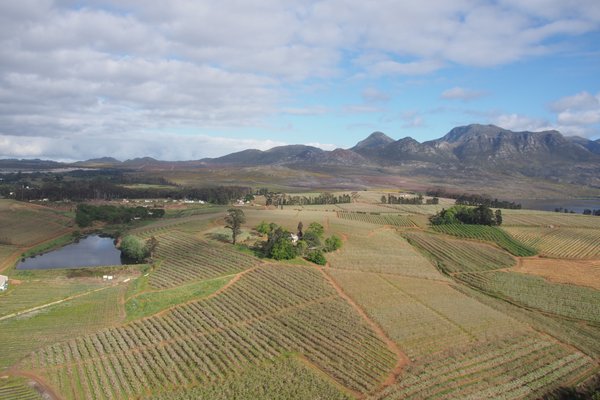
Elgin, which is technically a district in the Cape South Coast
region, has some unusual geography that makes it ideally suited to
growing high quality wine grapes. It is South Africa's coolest wine
region, and temperatures here rarely venture over 30 C. Andrew Gunn
of Iona showed me a print out from a temperature logger in one of
his vineyards, and it showed that over the 2016/17 growing season,
the temperature only went over 30 C twice, and then for just a few
hours each time. Vines love these conditions because they can carry
on the work of steadily ripening the grapes; usually once the
temperature passes 30, they shut down because of the risk of losing
too much water.
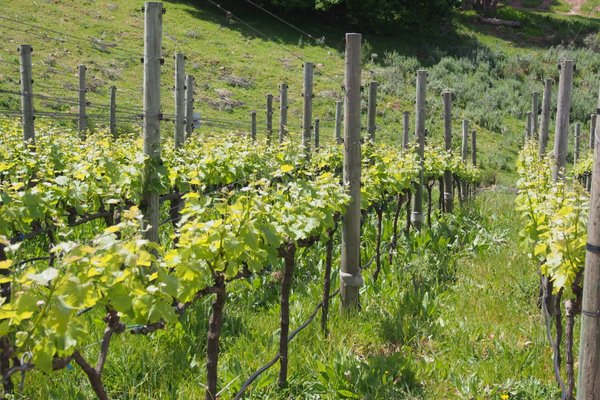
The valley is unusual in that it is surrounded on all four sides by
mountains. There are only four routes into the valley, and all of
these are passes. Think of Elgin as an elevated saucer, where the
valley floor is at around 300 metres, and is fringed by mountains:
this is the only wine region in South Africa that is surrounded like
this by mountains. In terms of geology, the mountains are made of
table mountain sandstone, while the floor of the valley is
decomposed shale. As the valley floor climbs to the mountain slopes,
there's a transition zone.
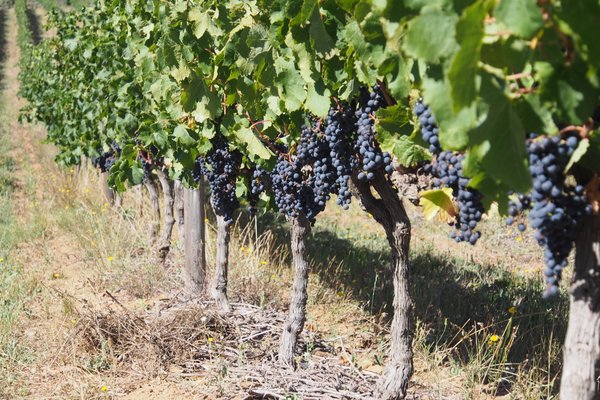
Within the valley, there are all sorts of exposures: lots of little
hills, and not so much completely flat ground. This makes for a
range of microclimates, and so deciding where to put a vineyard and
what to grow is a complex choice. When people first started planting
vines here, they didn't think it would be possible to ripen reds,
and Sauvignon Blanc was the great hope. Since then, it's become
clear that quite a few varieties do well here: you just need to
plant them in the right places.
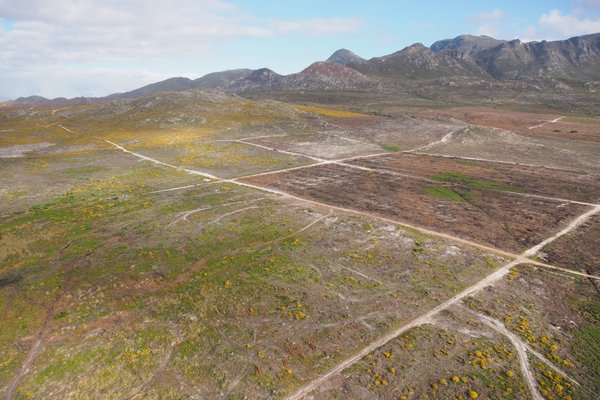
On my October visit, I took a flight around the valley in a
gyrocopter. From the air, you can see that there aren't all that
many vineyards in Elgin. It's actually an apple growing district
with vineyards rather than a wine region. The region was first
officially delineated as a Ward within the District of Overberg as
recently as 1990. At this time, apple growing was going through a
bad time, so as well as pioneering wineries, lots of farmers planted
vineyards because they thought it was a way to make money. Things
have changed, and now apple growing is vastly more profitable than
farming grapes. So quite a few vineyards have been ripped out and
replanted with apples, and many wine producers also produce apples.
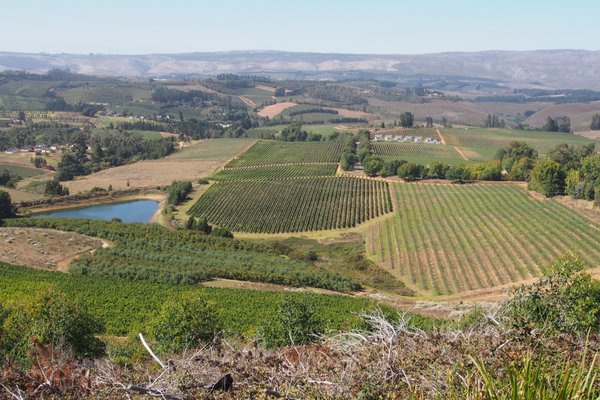
There are 7000 hectares of farming land in the valley, with 6000
hectares of orchards (mostly apples, some pears), which at the
moment are making good money. There are just 800 hectares of
vineyards, down from a high a few years ago of 1000, with vines
disappearing every year. 'If we weren't passionate about what we do,
we'd just rip out vines and plant orchards,' says Joris van
Almenkerk of Almenkerk, one of the leading wineries in the valley.
He points out that while there are 28 producers making Elgin wines,
there are only 9 cellars in Elgin. A lot of the grapes leave the
valley. Almenkerk has 15 hectares of vineyards, plus four more of
apples and pears, and they've just planted some more apples.
Oak Valley, one of the largest farms in the valley, has 360 hectares
of apples and are busy planting more. 'They say money doesn't grow
on trees,' says Oak Valley's Brad Gold, 'but here it does.' He adds,
'If you are just selling grapes, you are better off planting
apples.'
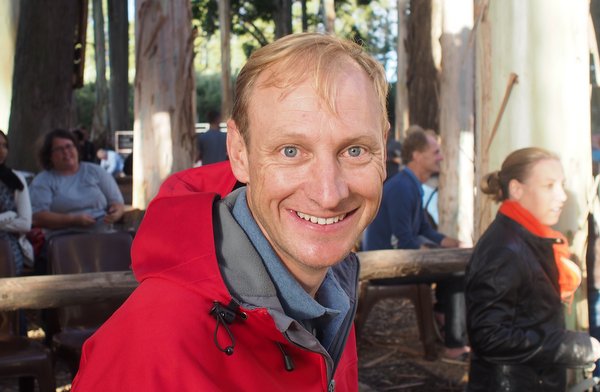
Paul Cluver
Paul Cluver, whose family winery was one of the pioneers of Elgin
winegrowing, agrees that Elgin is currently in a state of flux. The
second largest grape grower in the valley, Malteno (with their brand
Winters Drift) has moved away from vines. 'They took a position and
ripped out 60 hectares of vines,' he says.
Still, there's plenty of optimism about the wines that are coming
out of Elgin these days, economic issues concerning the
profitability of grapes aside. Chardonnay, in particular, is causing
quite a buzz, and Richard Kershaw, a relative newcomer, is leading
the way. His most recent releases are a three-pack of Elgin
Chardonnays titled 'Deconstructed', from different clones and soils.
They retail at 2400 Rand, which is an unprecedented price for South
African Chardonnay. The good news is that wines like these will, by
virtue of their pricing and market positioning, raise the price
ceiling and prestige of Elgin Chardonnay. The result will be that
some of the current excellent Chardonnays from the Valley, which are
underpriced, will be able to sell for a bit more. This should ensure
the future of vines in Elgin, and stop the vineyards being ripped
out for orchards. Because this is a very good place indeed to grow
wine grapes.
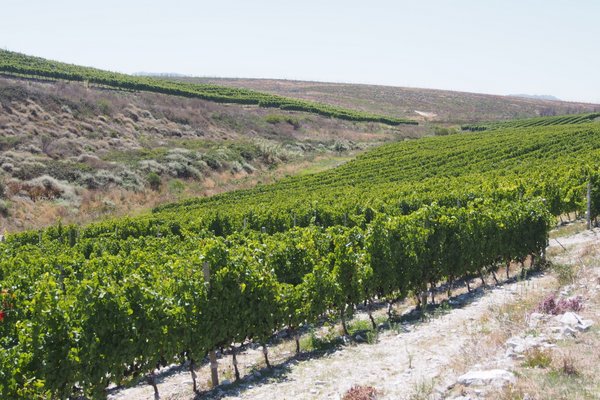
'Chardonnay is where this valley is going with whites,' says Brian
Smith, of biodynamic boutique winery Elgin Ridge. But Brian is
realistic: his Sauvignon Blanc is his biggest seller, and Almenkerk
also sell out of their Sauvignon Blanc each year. Iona built their
reputation with Sauvignon Blanc: this is why it is the most widely
planted variety in the valley. Joris van Almenkerk agrees with Brian
about Chardonnau. 'But Elgin should not be a one-trick pony,' he
says. 'The styles of our wines are so distinctive that restaurants
don't need to bump a wine of the list to put an Elgin wine on.'
For reds, two varieties are beginning to get quite a bit of
attention. The first is the obvious one: Pinot Noir. It's a variety
that has been grown here for a while, but it's only recently that
producers have been able to get some real elegance into the wines.
One of the leaders here is Paul Cluver, who have used Martin Prieur
of Domaine Jacques Prieur as a consultant. Martin visits regularly
and gets his hands dirty, and the 2014 and 2015 releases of the
Seven Flags Pinot Noir, the top bottling from Cluver, have shown
real elegance and purity.
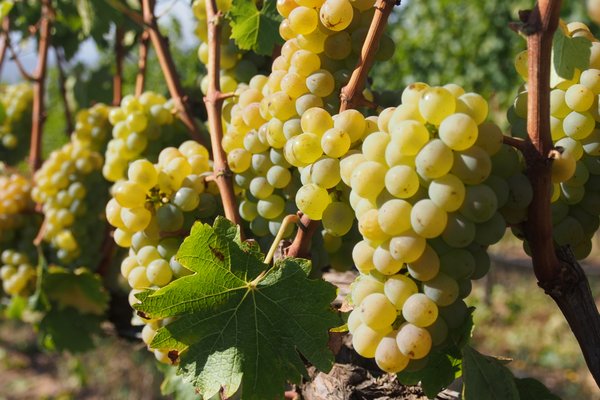
More recently, a number of producers have begun to get excited about
Syrah, which can do really well here. Andrew Gunn says that he's
very excited by the potential of this variety. His Solace Syrah is
evidence of just what this variety can do here. But other things
also do well: look at the impressive results that careful
viticulture has achieved with Merlot at Almenkerk.
With its cool climate, Elgin is also making some very nice MCC
(sparkling wine) emerging, with one producer, Charles Fox,
specializing entirely on MCC production. With the rise in interest
in sparkling wines, expect to see more fizz from Elgin. I have the
feeling that we are yet to see exactly what this small wine valley
can produce.
ELGIN WINE
 Introduction
Introduction
 Elgin
Ridge
Elgin
Ridge
 Almenkerk
Almenkerk
 Iona
Iona
 Paul
Cluver
Paul
Cluver
See
also:
 A
visit to Elgin from 2010
A
visit to Elgin from 2010
Wines
tasted as indicated
Find these wines with wine-searcher.com
Back
to top

